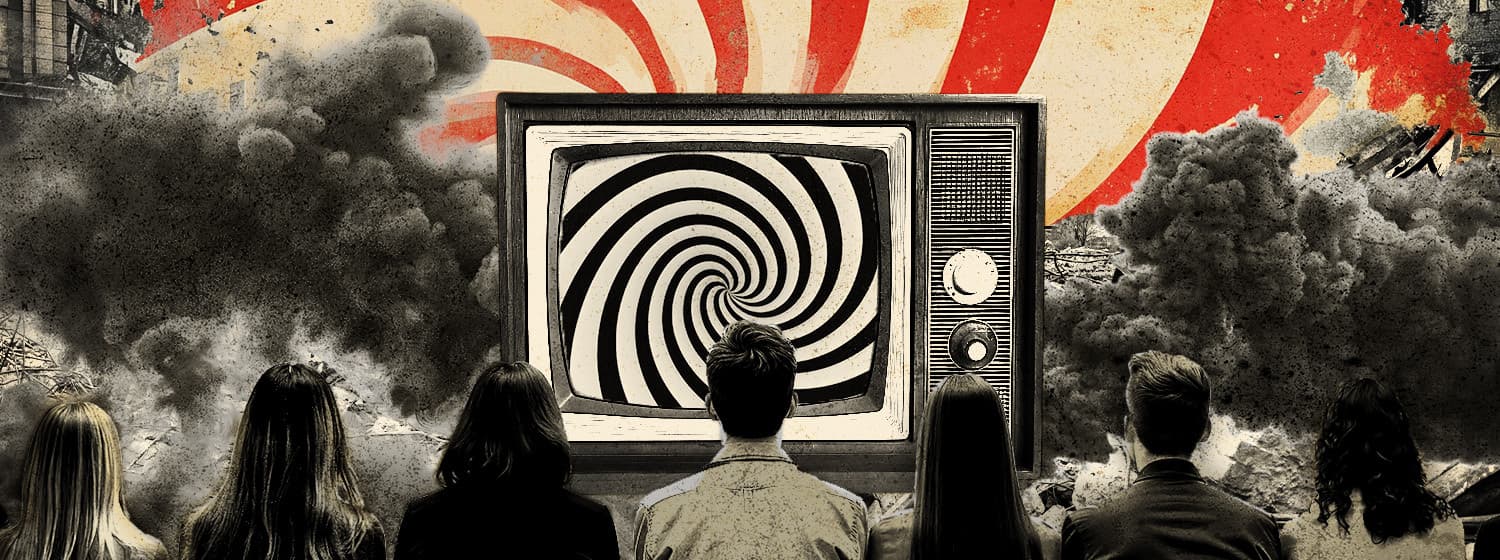
"Russians at War" - Pay to see Russian propaganda
27 March, 2025
Update: The screening was cancelled due to the Ukrainian Embassy's request.
If you've ever wanted to pay to see Russian propaganda, then you may be in luck. On the 30th March and 1st of April, Anastasia Trofimova's propaganda film, "Russians at War", will screen at KU Leuven's Auditorium Vesalius as part of this year's DOCVILLE film festival program (Archived). For those unfamiliar, Trofimova is a Moscow-born Russian film director whose works have been published by the state-controlled propaganda network, Russia Today.
Trofimova, now described as Russian-Canadian, positions the film as an anti-war story about Russian soldiers to better understand the war. However in the film, Trofimova illegally enters Ukraine, likely facilitated by the Ministry of Defence of the Russian Federation despite her claims to the contrary, and falsely portrays Russian soldiers as victims while pushing oft-debunked propaganda narratives, including:
- Civil war breaking out in Ukraine's Donbas in 2014
- Ukrainians were bombing their own people
- Ukrainian nazis
Throughout the film other Russian narratives are forced on viewers. Soldiers answer questions about the goals of the illegal invasion by parroting Russian propagandists from television: we are "one people", "brothers", "we are in a foreign land, but everyone is to blame". Trofimova attempts to portray an understanding of the nature of aggression, yet makes it her mission to humanize Russian soldiers who have illegally invaded a sovereign state and whose many war crimes are documented. But not in this film. In this film the soldiers have allegedly become the next victims of the Russian state, sent, as generations before them, to slaughter peaceful people in an imperial and genocidal war. Despite Russian soldiers systematically committing war crimes, the film tries to disseminate Russian narratives of "brotherly nations", purposefully ignoring the popular Russian sentiment that "Khokhols are subhuman" and "Ukrainian is a disease that must be purged". Seemingly, the purpose of the film, other than to justify aggression, is to whitewash Russian soldiers' crimes. The soldiers in the film shed tears for their deceased comrades but they do not challenge the state's prerogative to send them to die while willingly killing their "brothers".
At one point, Trofimova asks a soldier if the Russian army has committed war crimes. He replies “no”, simply claiming not to have witnessed any. Trofimova later repeats this during her interview: that during the seven months she spent in Ukraine, she also didn't see any war crimes committed. Because she claims she didn't see any, the film conveniently omits the widespread torture, rape, and genocide of Ukrainians in occupied territories. It doesn't show the destruction and deaths that the Russians have inflicted upon Ukrainians, but instead portrays the Russian occupiers as ordinary people. You know, the ordinary people who come to your house, rape and kill everyone and take your things.
Watching the film, you cannot help but question whether the film is the product of the Russian military or FSB. And given the repetition of Russian propaganda narratives and subsequent interviews defending Russia's aggression and the decision to whitewash Russian soldiers' war crimes, it's no mystery that an investigation was opened against Trofimova under Part 3 of Art. 436-2 of the Criminal Code of Ukraine (justification and recognition of Russian aggression as legitimate):
According to the information provided by the Department for the Protection of National Statehood of the Security Service of Ukraine (SBU), the film in question is an element of a special information-psychological operation carried out by the Russia’s intelligence services. Its purpose is to justify and support the military-political leadership of the Russian Federation in continuing its so-called “special military operation.”
- Embassy of Ukraine in the Kingdom of the Netherlands
She also landed herself on the Myrotvorets Center's website for:
- War propaganda.
- Propaganda of Russian fascism.
- Public support for Russian aggression and the murder of Ukrainian citizens.
- Encroachment on the sovereignty and territorial integrity of Ukraine.
- Participation in events aimed at the glorification of war criminals who took part in the murder of civilians in Ukraine, and the destruction of cities and villages of Ukraine.
- An accomplice in the crimes of the Russian authorities against Ukraine and its citizens.
This film attempts to slap lipstick on a pig, but it's still a pig in Orwell's Animal Farm.
For DOCVILLE's and KU Leuven's part, it's advisable to stop the screening of this film and prevent their willing complicity in the dissemination of Russian propaganda. It's also perhaps advisable to better research and understand the content being screened at future film festivals. The decision to screen this film begs the question whether it was undertaken by useful idiots, or willing participants. If the former, it's best to accept responsibility, apologise and take solace in the fact that they're not the only useful idiots attempting to screen this film in Europe.